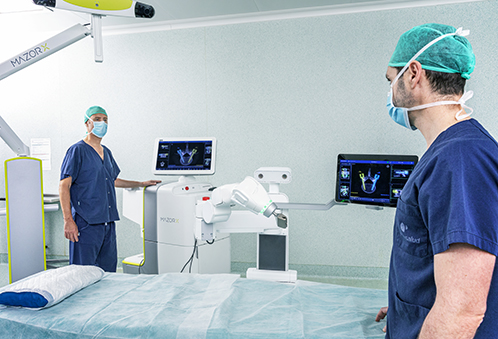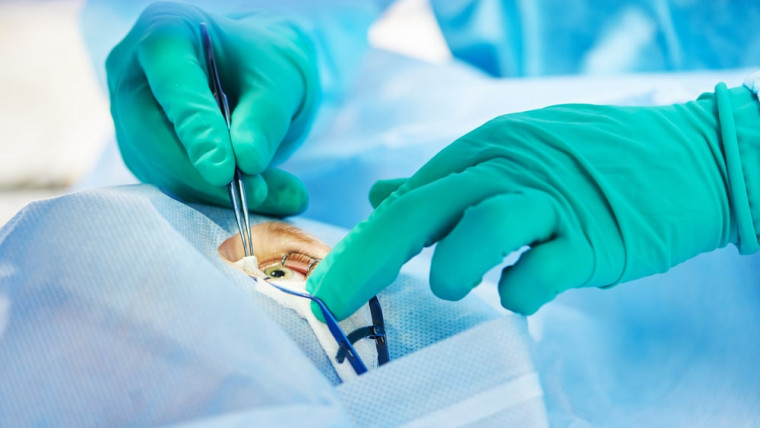The Mazor X Stealth Edition, the latest model of the Mazor, is a robotic surgery system consisting of a workstation and a robotic arm.
Unlike its predecessors, includes an integrated optical camera that allows the robot to acquire images in real time and perform a volumetric evaluation of the surgical field to auto-detect its location and avoid collisions with other system components.
WHAT SURGERIES IS IT USED FOR?
- Surgery to correct scoliosis
- Arthrodesis of the dorsal spine (degenerative, traumatic or tumor pathology)
- Arthrodesis of the lumbar spine (degenerative, traumatic or tumor pathology)
- Vertebral interbody fusion
- Vertebral biopsy (tumor pathology)
- Kyphoplasty (vertebal fractures)
WHAT ARE THE BENEFITS FOR THE PATIENT?
Robotic surgery systems have shown obvious advantages in comparison with conventional surgery of the spine:
- Improved precision in the placement of implants. Recent studies have confirmed that the system has a 98.7% precision rate of correct placement of screws (without deviation).
- Minimizes exposure to ionizing radiation, both for the patient and for all the operating room personnel. The average time required to insert a screw is 3.6 minutes, which reduces both the duration of the surgery and the risk of infection, as well as reduced exposure to radiation.
- Facilitates minimally invasive surgeries, which means a smaller surgical incision, and reduced loss of blood.
- Reduced postoperative pain thanks to the use of the robotic arm that less muscle retraction needed to operate in deep tissue.
- Contributes to a lower risk of infection thanks to a shorter time in surgery.
- Reduced risk of infection in the adjacent segment according to recent studies.
HOW DOES IT WORK?
The Mazor X robotic surgery system works as follows:
- The surgeon plans the surgical path of the implants using the patient’s images (CT scan taken before or during surgery) at the Mazor X Stealth Edition work station.
- The patient is placed on the operating table.
- The robot is anchored to the table and to the patient.
- The robotic arm records images of the patient. Mazor X features an innovative cross-modality image recording process, each vertebral body is independently registered. The robotic guidance system analyzes and pairs images from different modalities, such as matching a preoperative CT scan with intraoperative fluoroscopy or 3D surgical images, including images captured at different times and in different anatomical planes.
- The software guides the robotic arm according the the plan established by the surgeon for the surgical field.
- Placement of implants by the surgeon aided by the real-time neuronavigation system and guided by the robotic arm.



